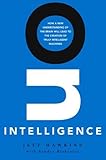Lots of books, talks, and blog posts help people learn Clojure the language, but leave out prosaic issues outside of the language, like development environments and using libraries. This covers the gap between dipping your toe in and confident proficiency.
This guide assumes you are aware of Clojure and want to become a Clojure programmer.
Sections
Why Clojure?
The Philosophy of Clojure
Language Tools
Rich Hickey’s Talks
Baby Steps
Leiningen
nREPL
nrepl.el
Helpful Tips
Appendix – Links
